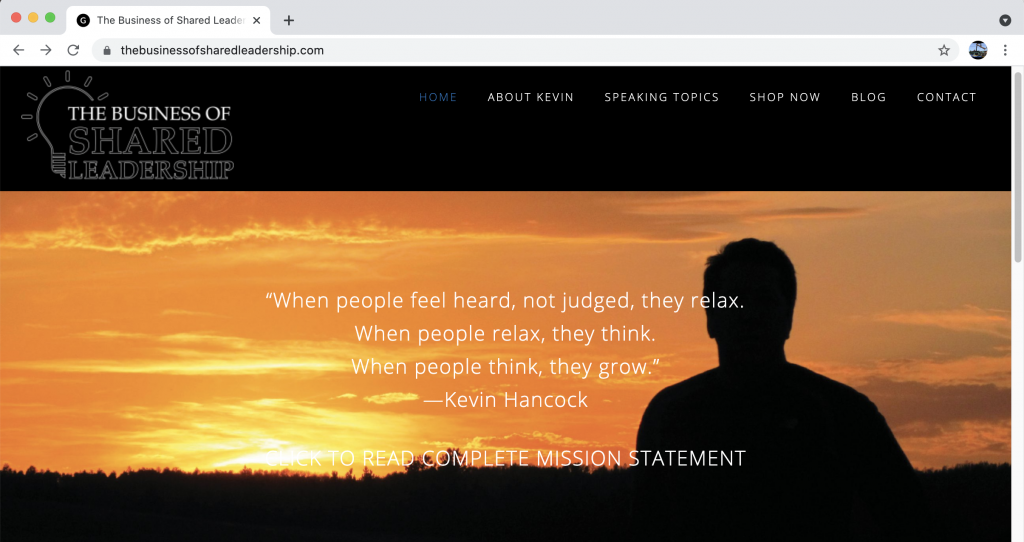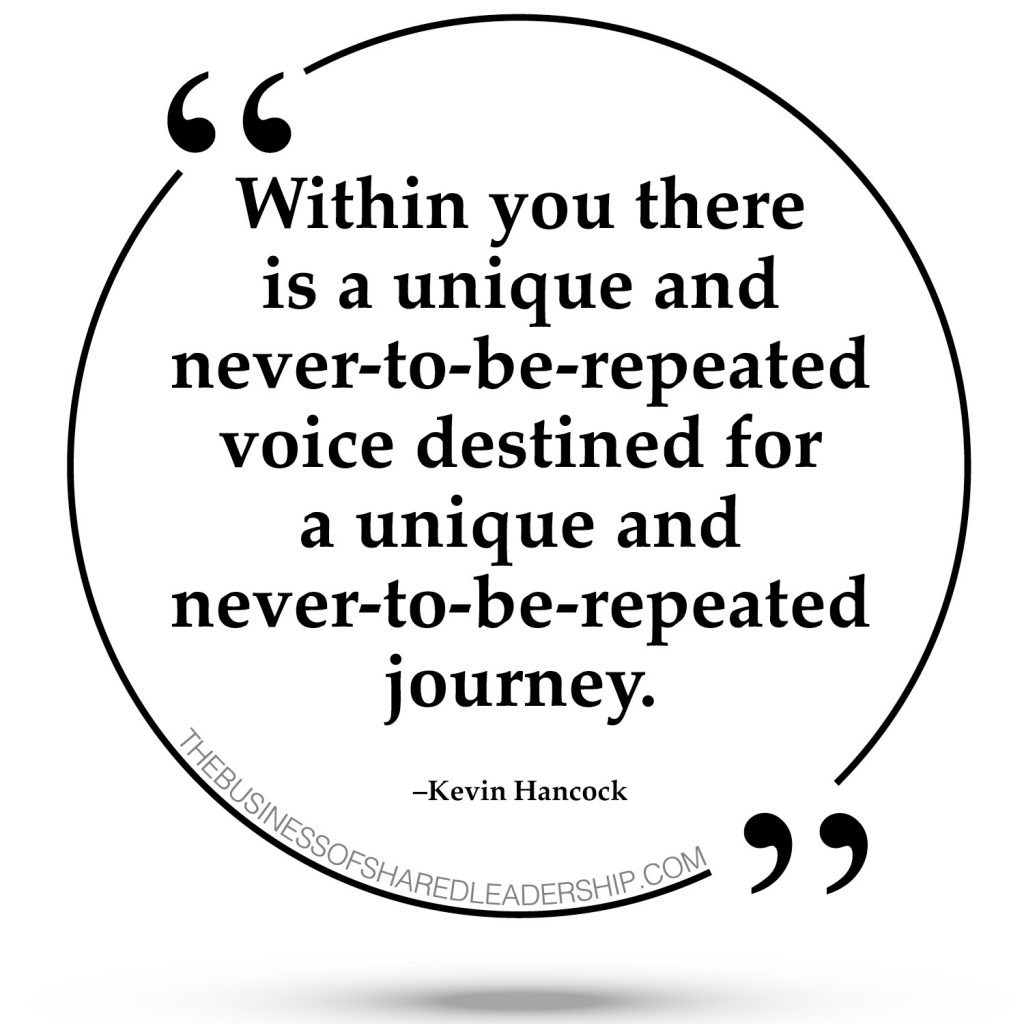“It is unwise to be too sure of one’s own wisdom.”
—Mahatma Gandhi
The potential blessing of this essay series is that I am writing from experience.
The potential problem with this essay series is that I am writing from experience.
* * *
When I decided to write this yearlong series about shared leadership, dispersed power, and respect for all voices, I simultaneously felt excitement and trepidation. This essay is devoted to the trepidation.
Close to the last thing this world needs is another CEO or anointed leader saying “Look at me.” I was so worried about this one point that I almost didn’t write this essay series at all. In fact, at one point I called it off and had to be talked back into sharing by my friends Kourtney and Erin from our communications team.
Then there was the challenge of the website upon which to post and host my writing. Prior to commencing this series the site was small and personal. As such, the site name was www.kevindhancock.com, but that too threw me off.
“It’s the message that’s important, not the messenger,” I said to Kourtney and Erin.
So we went back to the drawing board and changed the name of the site to www.thebusinessofsharedleadership.com. That felt better.

But we still had the same basic problem to overcome. I was writing in large part about my own ideas, which came from my own experiences, which often played out at our company. How do I share without implying that my experiences are uniquely valuable? How do I provide sound guidance to others while still honoring my own fallibility and weaknesses?
“I’ll just have to write about it,” I ultimately said to Kourtney and Erin.
And here I go . . .
The point of sharing my personal story is not that you should follow it. In my story I struggle to guide a two-century-old lumber company through the collapse of the housing market (2007–2010) only to lose some of my voice to a rare neurological speech disorder (spasmodic dysphonia), which then sent me journeying more than twenty times to a remote Indian reservation in South Dakota (Pine Ridge), where I met an entire community that did not feel heard. This experience helped me to realize that there are lots of ways to lose one’s voice in this world, and that leaders have often done more to restrict the voices of others than to liberate them. This, in turn, led me to rededicate my CEO role to strengthening the voices of others.
I am not recommending you do any of that.
Follow me is not the point of this essay series. In fact, to follow me would be to miss the point.
The point of this essay series is to Follow you.

My life got a lot better once I embraced my path and learned to follow. I could only have found that path by looking within myself. My opportunity appeared in the form of pain and setback.
Here’s the other important point: I likely look better from afar than I do up close! I’m actually a very ordinary person and CEO. I make lots of mistakes, both big and small. I drink too much soda. I eat too much fast food. I don’t give our dogs enough consistent love. I get impatient at times. I get self-absorbed at times. I fall out of living in the moment. I don’t always make the bed if I’m the last one out of it. At work I’m not always a great listener. I sometimes forget to have the patience for process. Sometimes I come in late. Sometimes I leave early. I can’t always do what I write about.
Our company, Hancock Lumber, is exceedingly human as well. We have excessive turnover in some parts of our company. Occasionally people get injured at work. Sometimes we make decisions without including everyone. Employees regularly have good reasons to be disappointed in part of their work experience. Customers, too, at times.
It’s important to me that you know all this.
It’s important to me that I confess.
Only in the spirit of humility can this essay series work.
Within that context we can share with benefit. Once we transcend ego we can learn from each other. In fact, to grow collectively, we must. Each individual life story flows into a shared human experience. What happens to one happens ultimately to us all. Your journey, not mine, must be your preoccupation. Out there before you is a path that only you will walk and a story only you will tell. In this realization, the concept of hero is redefined. Every one of us has embarked on a hero’s journey disguised as something ordinary.
“Great leaders don’t need to act tough.”
—Simon Sinek
_____
Thank you for considering my thoughts. In return I honor yours. Every voice matters. Nestled between our differences lies our future.